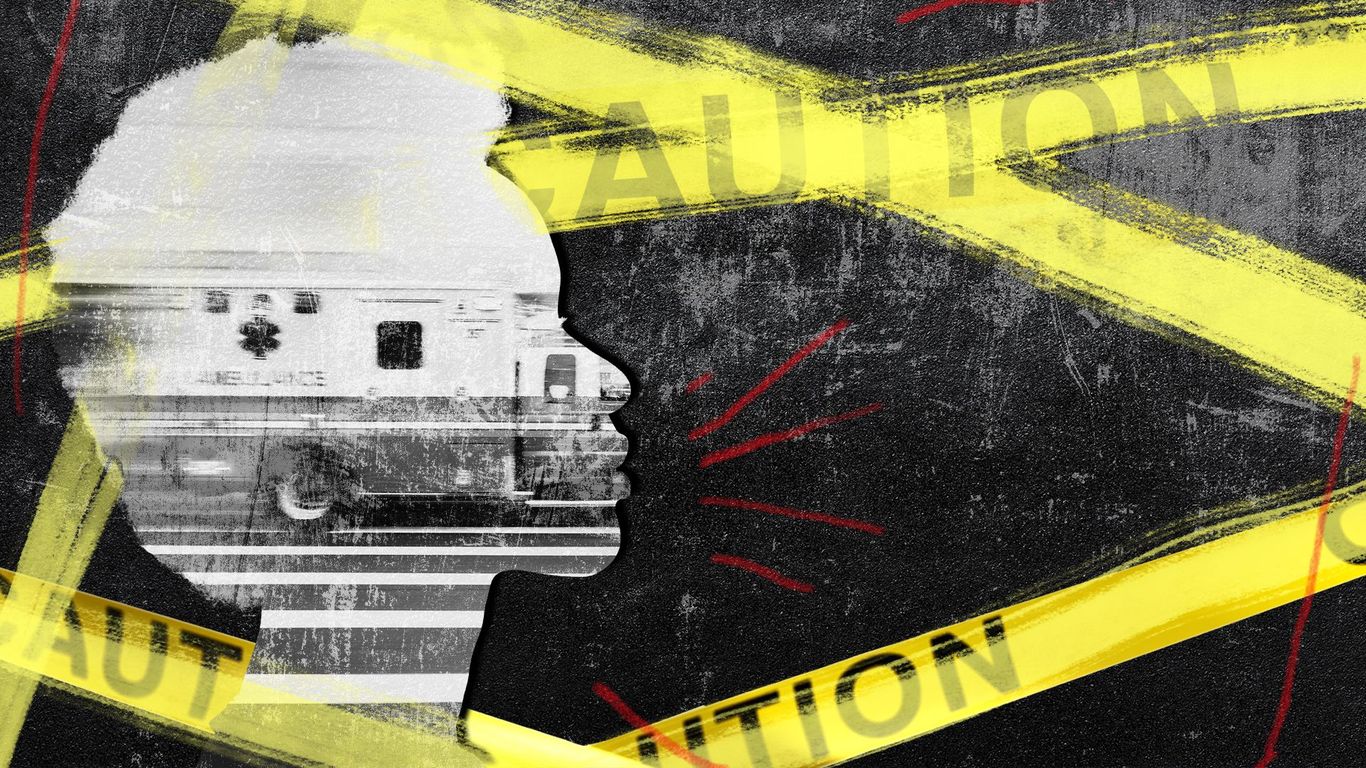
Weeks before he was to start his professional basketball career in Europe, in the summer of 2009, Aswad Thomas walked out of a Hartford, Conn., convenience store and into an armed robbery. Two shots to the back ended his career — and nearly his life.
Why it matters: Police talked to Thomas about the case but never asked about his recovery or told him about the services he was entitled to as a victim of a crime.
- But Thomas, now director of Crime Survivors for Safety and Justice, tells Axios that the pandemic and the national examination of systemic racism have shined a spotlight over the past year and a half on the longstanding shortcomings around the treatment of non-white victims of crime.
The big picture: Organizers say victims' advocates have been disproportionately white and focused on white victims — even though crime victims are disproportionately Black.
- Violent crime, including homicides, rose sharply last year. And a 2018 Washington Post analysis of nearly 50,000 homicides around the country found that an arrest was made in 63% of murders of white victims, compared to 48% of those with Latino victims and 46% with Black victims.
- "In my immediate family, five out of 10 males were victims of gun violence, and none of us ever received any support," Thomas tells Axios.
- That includes his father and brother, Thomas said. All told him that no crime victims' advocate ever reached out to them.
How it works: Victims of crime in many states have access to financial assistance, crisis counseling, legal services and notifications of suspects moving through the criminal justice system.
- But some states deny victims of crime access to compensation if they've been convicted of a crime themselves — even minor crimes, years earlier — said Stephen Massey, chief operations officer at the CitiLookout Counseling and Trauma Recovery Center in Springfield, Ohio.
- "We had the Dayton mass shooting here (in 2019) where we had 20 victims who were denied victim's compensation due to things related to something far in the past like toxicology... things that really were irrelevant," Massey said.
What's next: Thomas and other activists have been advocating for the opening of trauma recovery centers to address disparities.
- The centers offer free clinical case management, psychotherapy, crisis intervention, and medication management as well as legal advocacy and help filing police reports and accessing victim compensation funds.
- About three dozen have opened in recent years in California, Ohio, and Michigan, with more planned in Texas and Florida.
- The centers aim to improve relations between communities and local law enforcement and to work with state legislatures on criminal justice reform.
What they're saying: Some crime victims of color and their families are raising concerns not just about their attackers but about how the system failed the attackers.
- In Houston, Theresa Seck publicly questioned elected officials about why some repeat violent offenders are freed from jail on multiple felony bonds and personal recognizance bonds. Her brother was shot to death last year. The suspect charged had been out on bond and wearing an ankle monitor.
- "This bond situation ruined two Black families," Seck told Axios. "The family of the victim and the family of the person who shot my brother. Now he could be in prison for life. It didn't have to be this way."
- Seck has teamed up with traditional victims of crime groups to advocate tougher bail and bond reforms in Texas. She called it a civil rights issue since crime disproportionately hurts communities of color.
"crime" - Google News
October 09, 2021 at 06:30PM
https://ift.tt/3iJvyt2
Programs for crime victims leave families of color behind - Axios
"crime" - Google News
https://ift.tt/37MG37k
https://ift.tt/2VTi5Ee
Bagikan Berita Ini














0 Response to "Programs for crime victims leave families of color behind - Axios"
Post a Comment